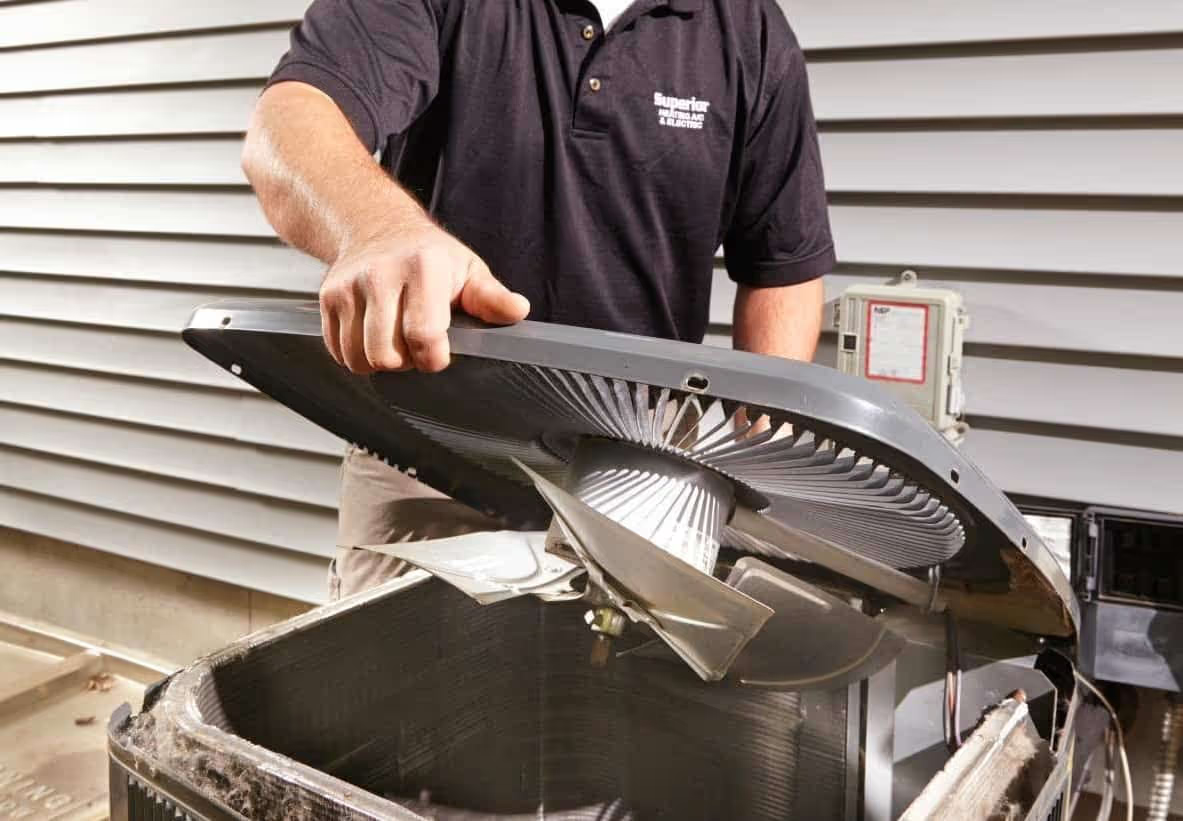
When Your AC Is Silent Start with the Capacitor
It’s the middle of a hot East Texas day, and your air conditioner suddenly stops working. No cool air. No humming from the outside unit. Just silence.
Don’t panic, this is often a simple fix. In many cases, the culprit is the capacitor.
At Bannister Plumbing & Air, we see capacitor failure all the time, especially during high-demand summer months. If your AC isn’t turning on or seems to be struggling to start, here’s what you need to know.
What Does an AC Capacitor Actually Do?
Capacitors are small but essential components in your HVAC system. Think of them like your AC’s battery boost—they store and release energy to help the system start and run its motors.
Your system likely has capacitors for:
- The compressor
- The outdoor fan motor
- The indoor blower motor
When your thermostat tells the system to kick on, the capacitor delivers a jolt of power that gets everything moving.
Without that jolt? Nothing happens.
How to Tell If a Capacitor Is Failing
Here are some of the most common symptoms we see in homes across Tyler and East Texas:
- AC won’t turn on at all
- The fan isn’t spinning, but you hear a hum
- AC turns on, then shuts off quickly
- Breakers trip when the AC starts
- Burning smell or bulging capacitor casing (visible during inspection)
Sound familiar? It’s likely time to test the capacitor.
Why Do Capacitors Go Bad So Often?
Capacitors are built to wear out over time—but certain conditions make them fail faster:
Texas Heat
High outdoor temperatures speed up the breakdown of the dielectric fluid inside the capacitor. When that fluid degrades, the capacitor can’t hold or release energy effectively.
Power Surges
Lightning storms or fluctuations in the power grid can fry a capacitor instantly—or weaken it over time.
Wear and Tear
Even under normal use, capacitors degrade with every start-up cycle. Frequent cycling (like during really hot weather) increases stress.
Cheap Components
Unfortunately, many systems are installed with lower-quality capacitors that just don’t last. That’s why we always recommend using high-quality parts during repairs.
Should You Replace a Capacitor Yourself?
We don’t recommend it. Even when disconnected, capacitors can store electricity and deliver a dangerous shock.
Professionals use:
- A multimeter to double-check voltage
- Insulated tools to safely discharge the capacitor
- Proper wiring techniques to avoid damaging motors or causing shorts
Replacing a capacitor may seem simple, but doing it wrong can be costly—or unsafe.
Trust Bannister Plumbing and Air for HVAC Repairs in Tyler
If your AC won’t start or the fan isn’t spinning, a failed capacitor might be to blame, and it’s one of the fastest repairs we handle.
Bannister Plumbing and Air is trusted throughout East Texas for:
- Accurate, honest diagnostics
- Licensed HVAC technicians
- Safe and reliable repair work
- Fast service, done right the first time
Need Help Getting Cool Again?
Don’t sweat through the summer. Call Bannister Plumbing & Air today to schedule AC diagnostics or service. We’ll find the issue and get your system running again.




